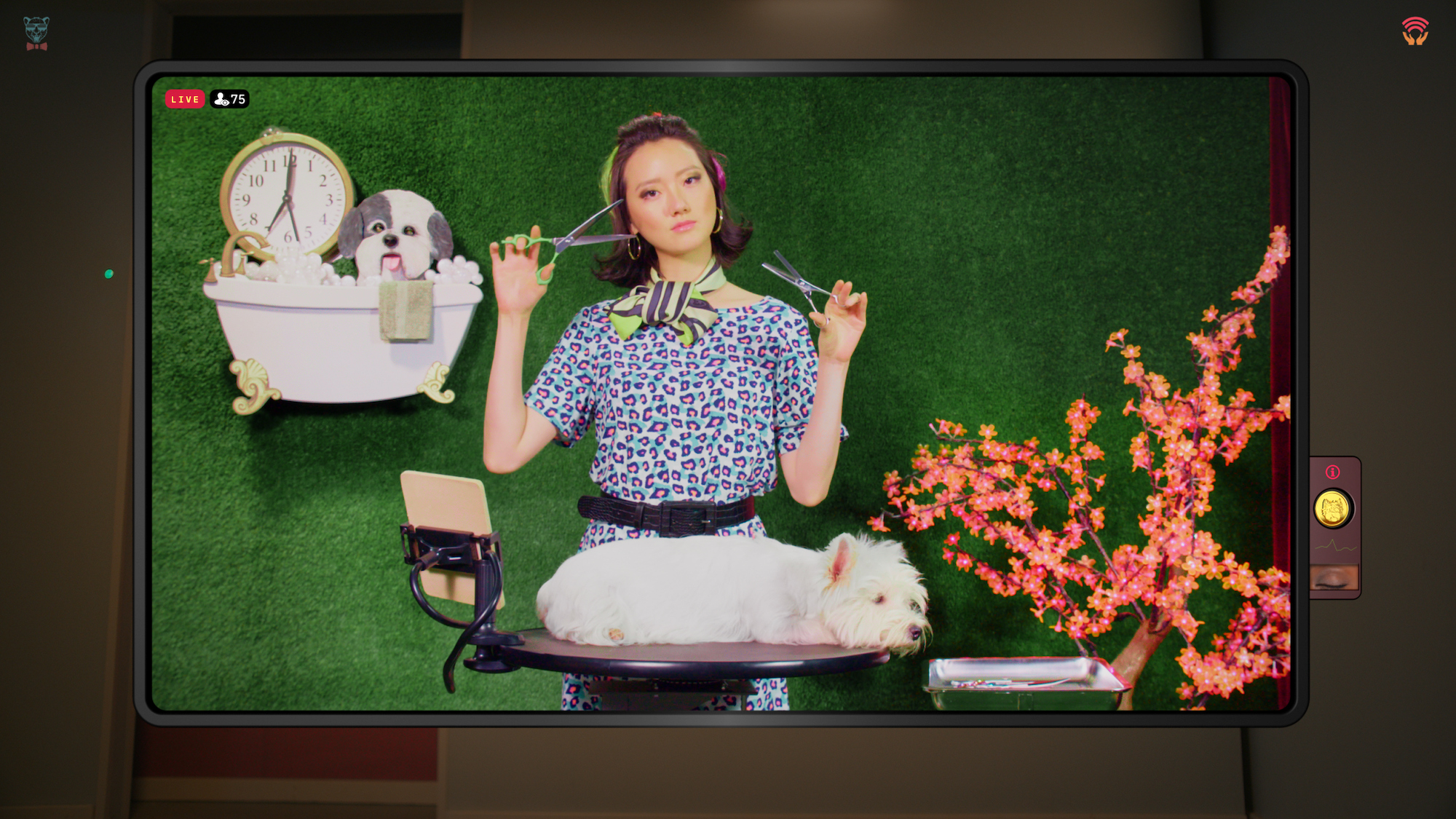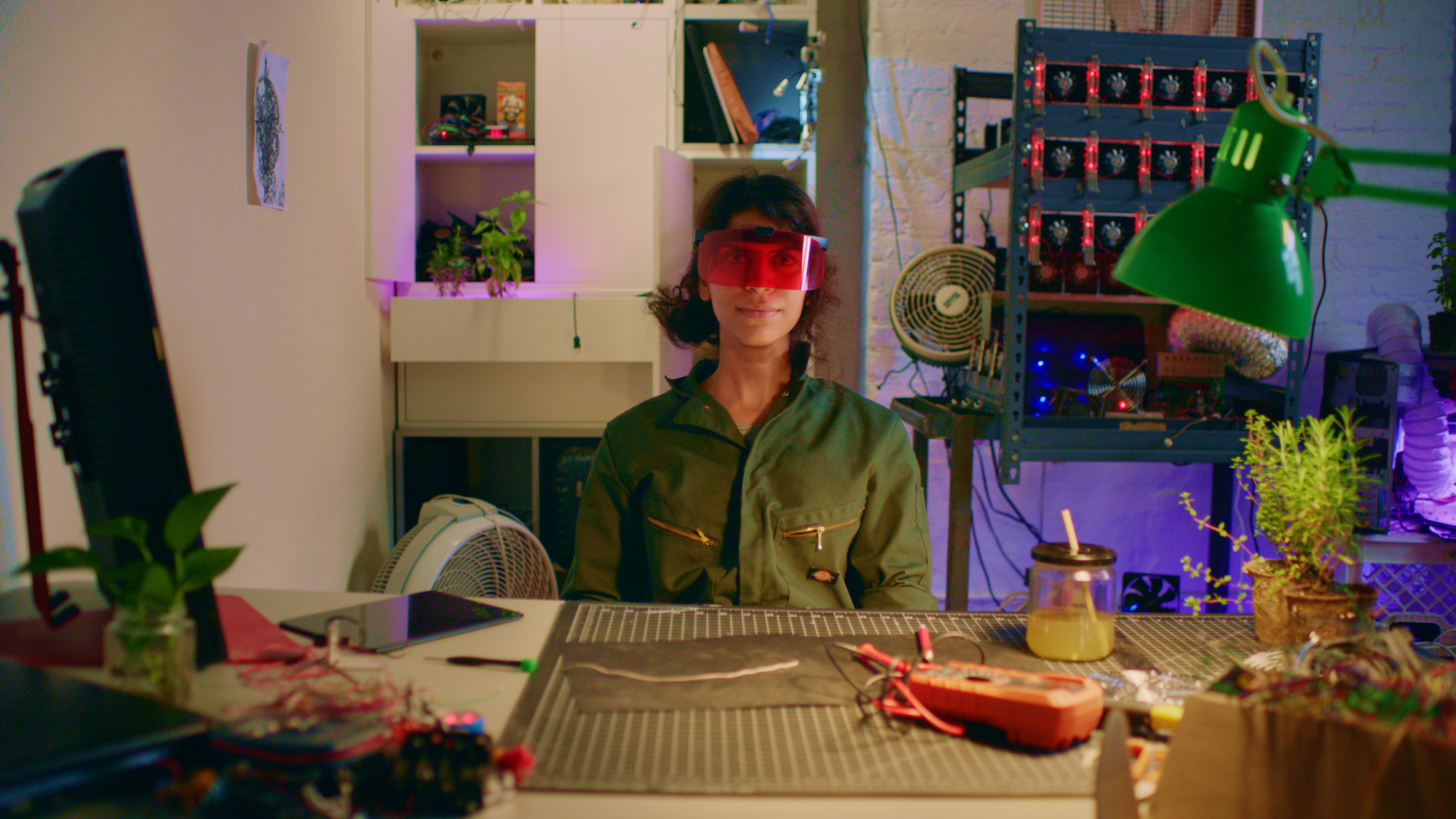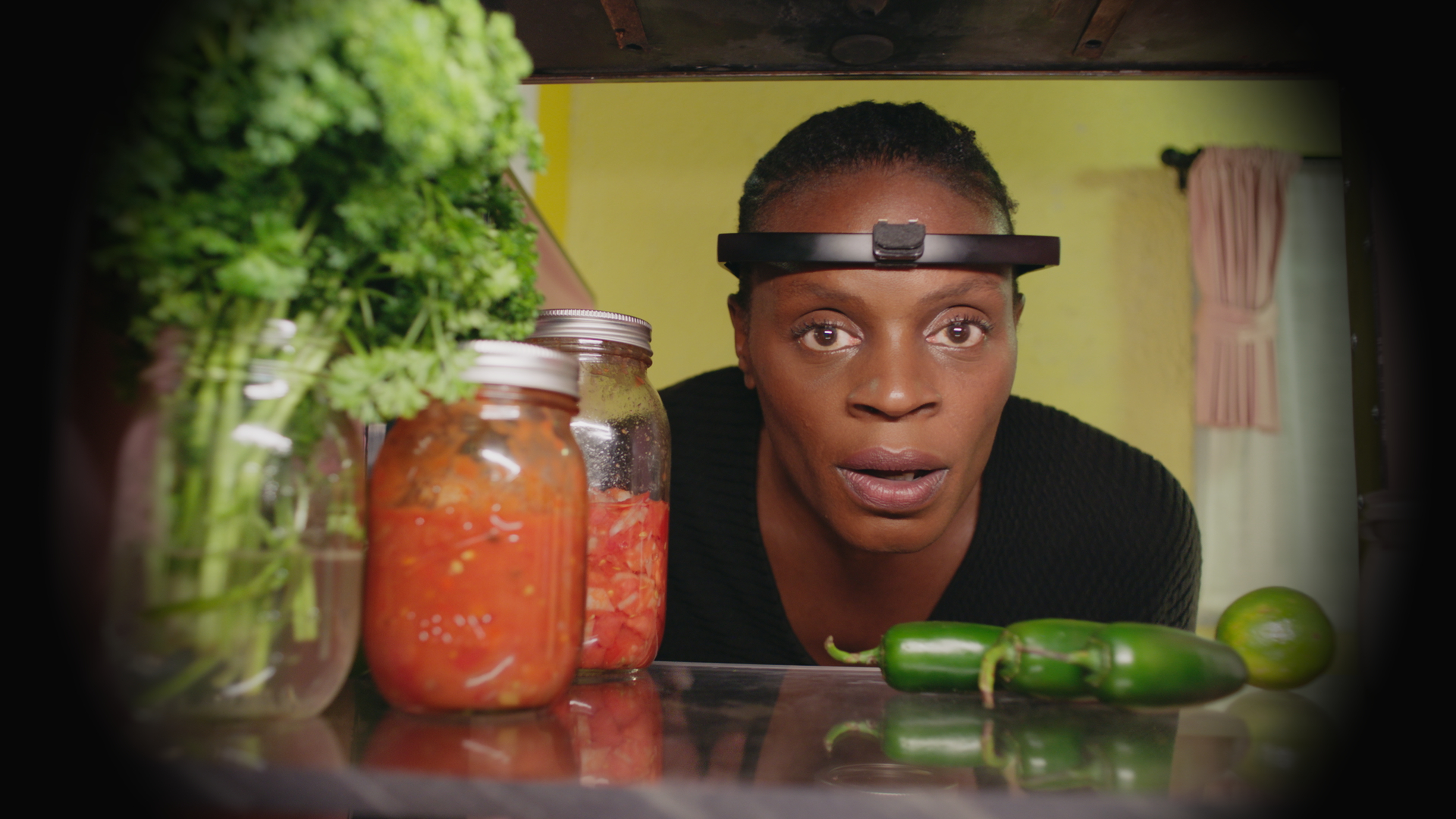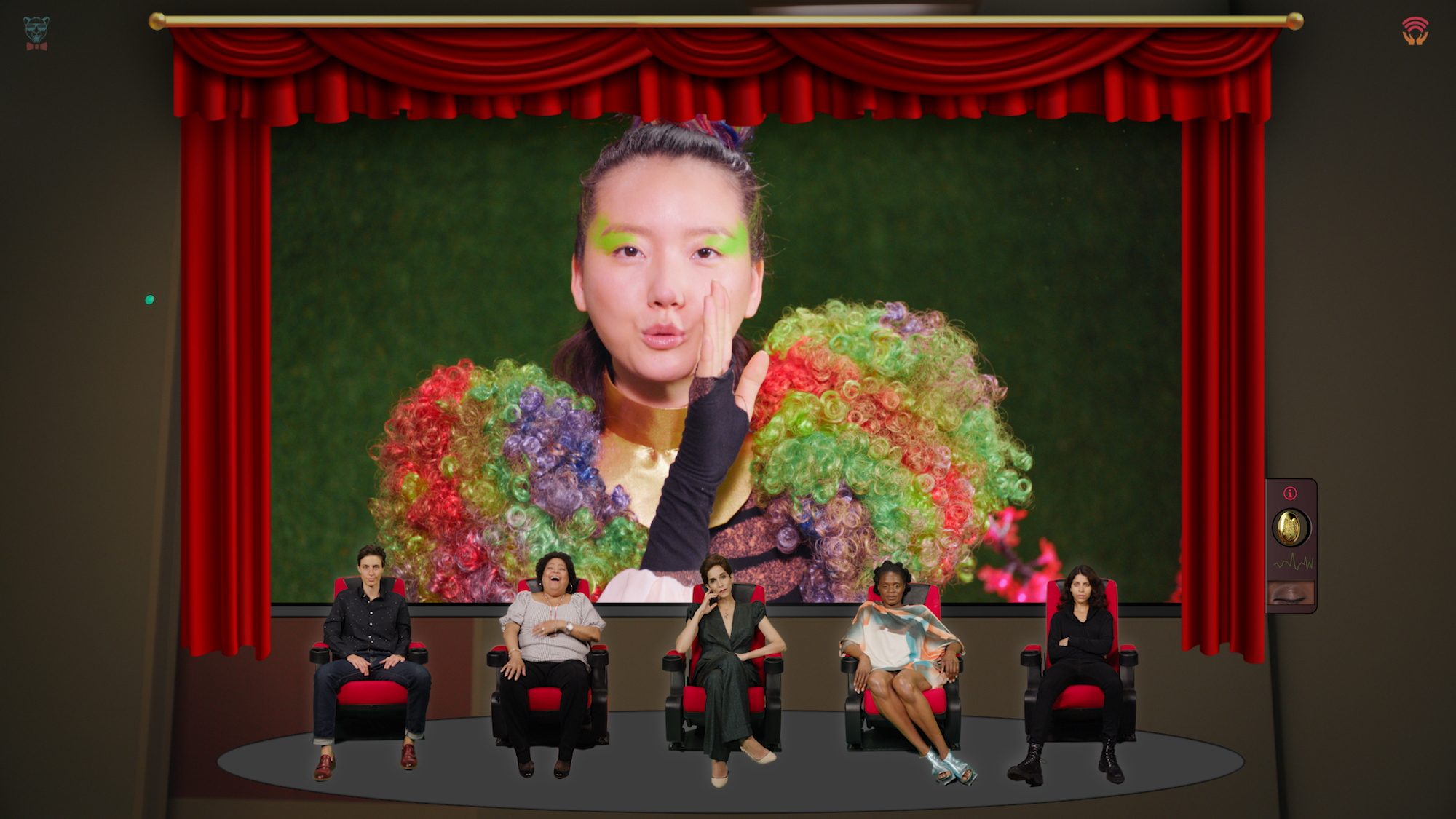The dash joins and the dash moves along. For the Dash column, Claudia Ross peers into the quarantine-era wormhole of Mika Rottenberg and Mahyad Tousi’s feature-length film, REMOTE.

Mika Rottenberg and Mahyad Tousi, REMOTE, 2022. Video still. HD video with sound, 92 mins. © Mika Rottenberg and Mahyad Tousi. Courtesy of the artists and Hauser & Wirth.
“Where?” she asked. That shut him up.
–Thomas Pynchon, The Crying of Lot 49
Mika Rottenberg calls her artwork “social surrealism,” a term that aptly highlights her fantastical representations of labor in hypercapitalist spaces. Her videos center, and satirize, the repetitive, ridiculous tasks that define contemporary modes of production: a woman sniffs endless plates of spaghetti in her office, for instance, while factory workers below her mine oysters for pearls. In REMOTE, Rottenberg’s first feature-length film, written and directed with collaborator Mahyad Tousi, the artist turns her focus online. The film’s protagonist, Unoaku (Okwui Okpokwasili), isolated and bored in a pandemic-ish future, becomes fascinated with the nightly livestreams of Eunji (Joony Kim), a South Korean dog groomer who runs a salon for Soju, her Wheaten Terrier. Unoaku notices oddities in the groomer’s “doggie clock” that only some people can see—it runs backwards and shoots smoke—leading her to four other women similarly consumed by the unusual spectacle. Together, the chatroom-based group embarks on a conspiratorial, epistemological quest to understand the clock, united in their shared pursuit of meaning beyond work.

Mika Rottenberg and Mahyad Tousi, REMOTE, 2022. Video still. HD video with sound, 92 mins. © Mika Rottenberg and Mahyad Tousi. Courtesy of the artists and Hauser & Wirth.
REMOTE’s sci-fi universe displays a seamless integration of the digital and the real, a premise that devolves and becomes supernatural over the course of the film. An interactive VR headset provides Unoaku’s only contact with the outside world, her sole pleasure in a routine that recalls pandemic life before the vaccines: Unoaku works from home, bangs a pot out her window, and reads Ocean Vuong’s On Earth We’re Briefly Gorgeous. At first, Unoaku’s obsession with Eunji and her clock feels comic, an event that dramatizes contemporary relationships to computers, phones, and televisions. As the narrative progresses, though, the clock’s glitch has mystical consequences; the group’s journey leads to a magical portal where the five women—and, eventually, Eunji—touch fingers, despite their diverse geographical locations. In a world where technology structures every interaction, its breakage signals a larger rupture, a gash in the spatiotemporal fabric.

Mika Rottenberg and Mahyad Tousi, REMOTE, 2022. Video still. HD video with sound, 92 mins. © Mika Rottenberg and Mahyad Tousi. Courtesy of the artists and Hauser & Wirth.
REMOTE contains all the dramatic propulsion of most wide-release films, but its narrative emphasizes the development of an anti-capitalist community, one enabled and inspired by technology’s potential for failure. Concrete social intention undergirds REMOTE’s fantastical science fiction: its conclusions assert a utopian world where technological malfunction and free time enable actual human connection. These women find each other only when the clock breaks. Rottenberg and Tousi’s materialist concerns are most evident in jarring moments of realism; the portal’s power is that it allows the women to see and touch each other in their worn-down physical spaces. In the film’s final act, Eunji is revealed, a struggling single mother living in a small Seoul apartment, her salon just a shabby set.

Mika Rottenberg and Mahyad Tousi, REMOTE, 2022. Video still. HD video with sound, 92 mins. © Mika Rottenberg and Mahyad Tousi. Courtesy of the artists and Hauser & Wirth.
As museum-goers came in and out of MOCA’s Ahmanson Auditorium, where REMOTE screened thrice daily, I watched their faces adopt the expressions of Unoaku and her compatriots, moving from confusion to delight to satisfaction. REMOTE is about watching movies: jolted from routine conceptions of time, we hope for communal meaning in the fictitious narratives onscreen. It is through the excitement of conspiracy—of plot—that Unoaku finds her digital public square, a gathering place in an otherwise atomized, overworked world. The film reflects a prevailing ethos, giving shape to the desire to understand the obscured machinations of technology, labor, and power. Ultimately, its answer lies close to home. x

Claudia Ross is a writer in California. Her fiction and arts criticism have appeared or are forthcoming in ArtReview, Joyland, The Baffler, The Los Angeles Review of Books, and others.